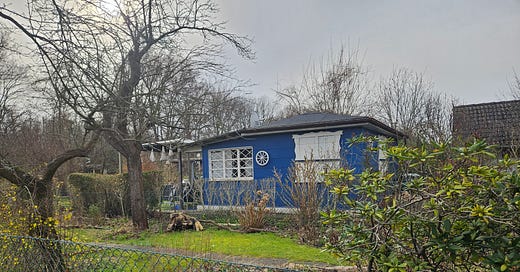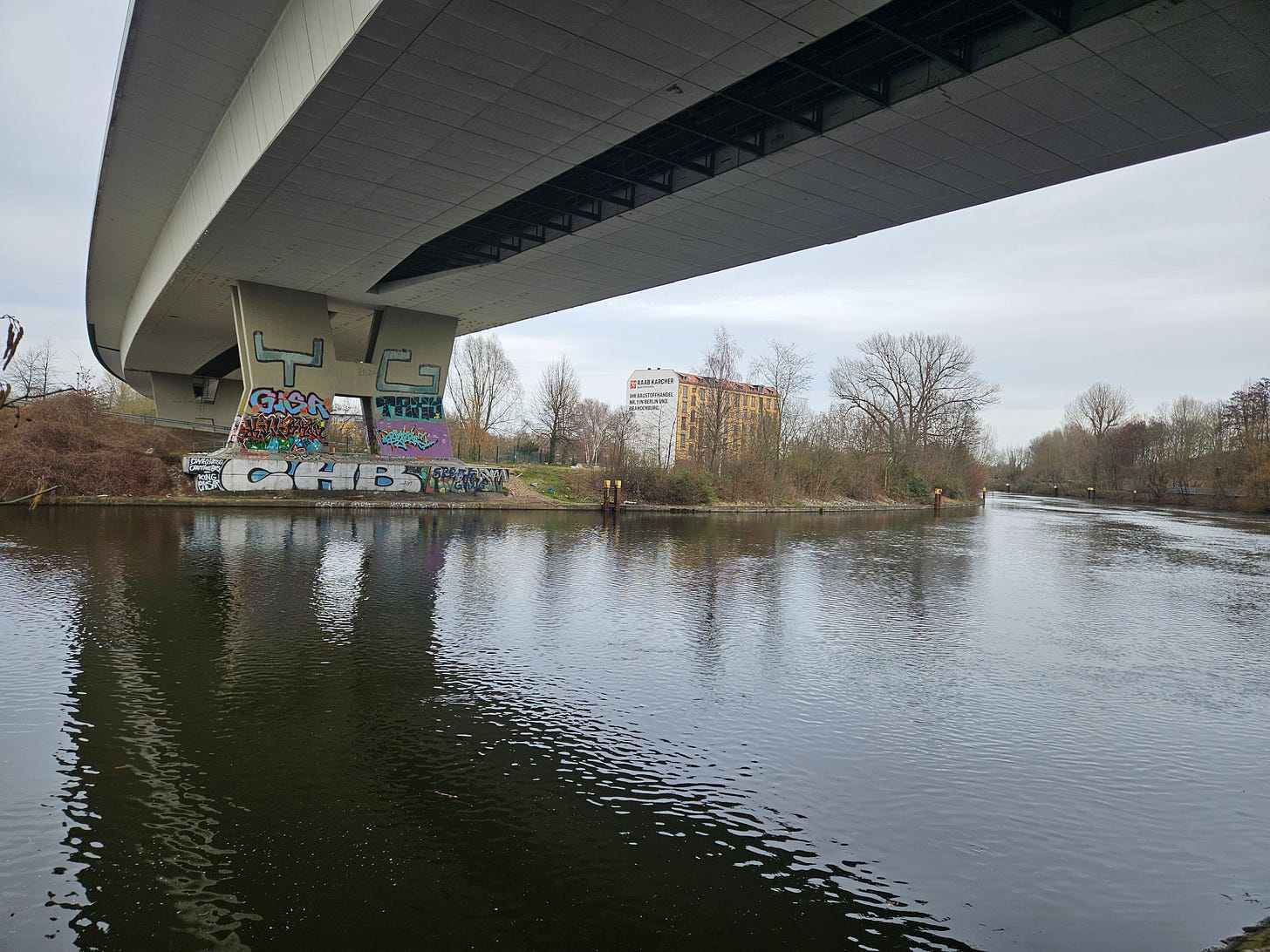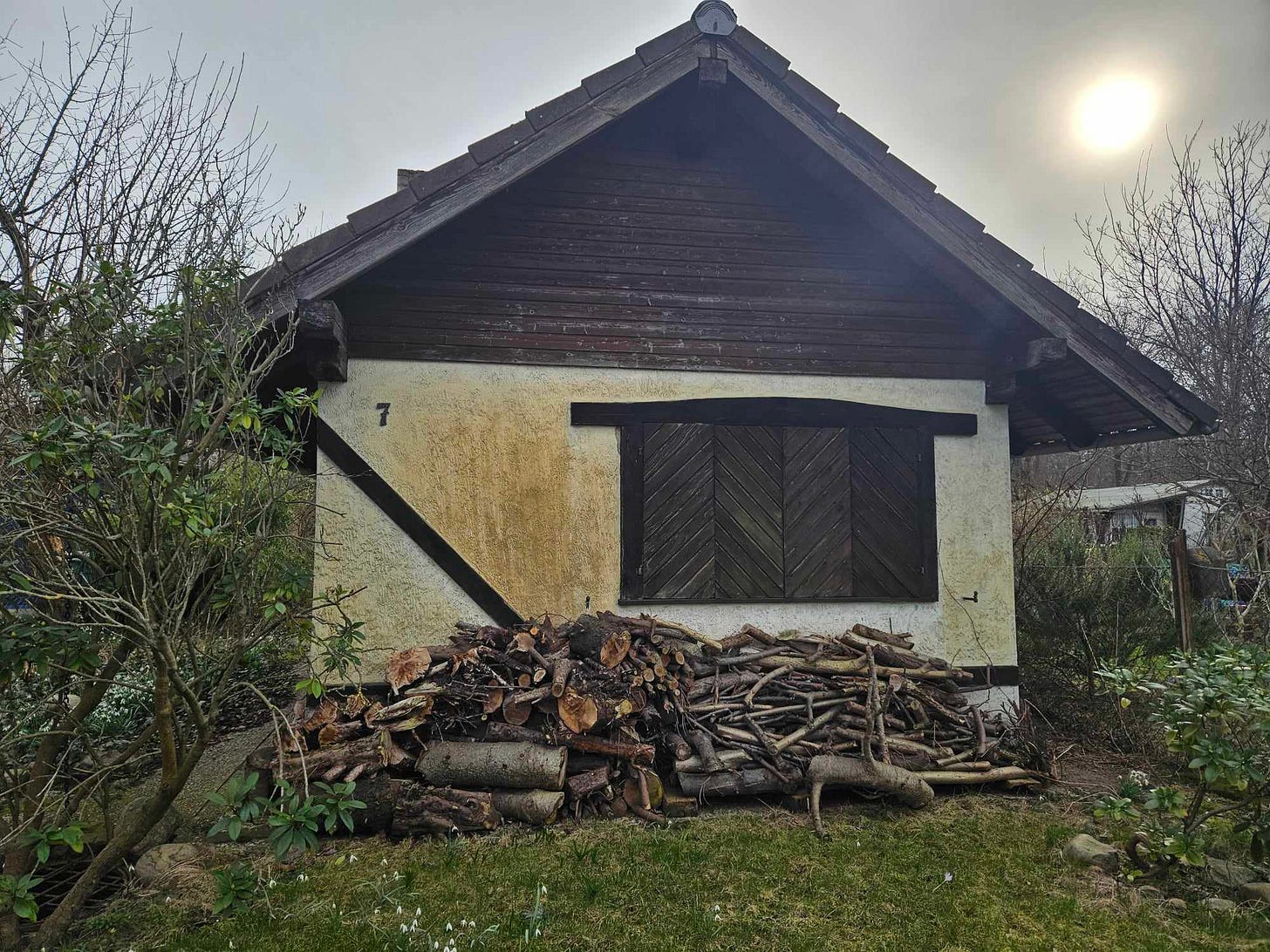Hidden Berlin - the mysterious garden colonies inspired by a doctor who opposed masturbation
I stumble upon a strange collection of tiny houses with immaculate gardens, wedged between railway and river
What do Victorian anti-masturbation machines, osteopathy and German allotments have in common? They were all passions of a slightly peculiar Leipzig doctor called Daniel Gottlob Moritz Schreber, an advocate of child health, who, at the start of the industrial era, feared for the well-being of urban children
As a travel writer, I rely on google maps, not only to get me around unfamiliar cities, but also to serve as a reminder of the places I have been and places I want to visit. I use the save button on spots that interest me - and this makes an adorable pink heart appear. My Paris map looks like a greeting card shop on Valentine’s day; my Berlin one is a little sparser.
Earlier this week I returned to Berlin after an 18 month gap. Last time I was there I was researching one of my “quirky things” travel guides, wandering about looking for carved trees, sniggering at a place called “Ballhaus” and the hearts on my map reflected these unusual destinations. But in the northwest of the city there was a heart that I didn’t remember, not far from Schloss Charlottenburg. Intrigued by why I had marked this place, I walked miles throught the broad streets of Berlin, past brutalist buildings, until I arrived at the Schloss, cutting through its pretty gardens to reach the banks of the River Spree. There, I followed a path under a busy road bridge into a wasteland - railway to my left, broad grey river to my right until, rounding a corner I was confronted by the most peculiar sight.
Behind a high mesh fence was a series of immaculately kept gardens, which, despite the horrible freezing cold of a Berlin February, were coming out of hibernation with flashes of pale blue crocus and yellow narcissus. On each garden plot stood a tiny house with a tiled roof. Some had wooden shutters, others pretty lace curtains in the windows. They seemed so out of place in this bleak, remote area of no man’s land in between two busy road bridges.
I walked another few hundred metres until I came to a sign that explained what this unusual village of tiny houses was doing here. ‘Kleingartenkolonie Spreewiesen’ it stated, which translates as ‘Small garden colony, Spree (the river that runs through Berlin) fields’.
The area this garden colony occupies is known as Siemenstadt, as it was formerly the property of the Siemens company. In order to help their employees enjoy fresh air and grow their own food, the company divided this area into plots. In the 50s and 60s these allotments were like small farms with fruit trees and vegetable patches. In 1969 it reduced in size and the farms were replaced by smaller plots. Today there are 134 parcels of land, each one rented by a Berliner for about 400 euros a year. Once the province of bourgeois pensioners, now these tiny houses and gardens are attracting a younger hipster crowd, as well as families with small children.
I expect you are, quite fairly, wondering what all this has to do with masturbation, so I will put you out of your misery. The founder of these allotment schemes was a rather do-good-ery doctor called Daniel Gottlob Moritz Schreber, who took a keen interest in children's health. Born around the time of urbanisation and at the beginning of the industrial era, Schreber was concerned about the negative effects of city life on child health. An advocate for outdoor activities for children, he was also obsessed with their posture, (he hated slouching) and encouraged the use of mechanical devices to prevent teenagers from interfering with themselves.
After his death an organisation was set up in his name ‘Schreberverein’ which created fields that urban families could play in. Later, his name became associated with allotment schemes and people around Germany still refer to them as ‘Schrebergærten’.
I watched a woman digging the frozen earth of a flowerbed, and a man moving garden ornaments about on an unnecessarily meandering stone path. Some of the houses seemed to be occupied; I could see glimpses of furniture through the windows.
Living in these tiny houses is strictly verboten and like pretty much everything in Germany (and I lived there for a year, with a small child, so am not just throwing stereotypes about) taking on a Kleingarten is fraught with rules, most of which seem to revolve around noise. No machines can be used at all on Sundays; ‘Ruhezeit’ - (which is more or less German for siesta, usually the hours between one and three pm) must be respected and no music can be played during this period of enforced quiet. However, tolerance is demanded for the noise made by playing children at all times.
But what happens to the noise coming from the many trains that rattle past, just metres from the colony? It reminds me why I didn't enjoy Germany very much - so many rules and not all of them logical.
One sensible rule of this allotment scheme, is that a third of each plot must be used for food production - which in a time of climate change and rising costs of living, seems an excellent idea. Another great rule states that no chemicals can be used on the plots, protecting both soil and ground water.
But there's an affordable housing crisis currently in the burgeoning German capital and with around 70,000 allotments across the city, that space is being eyed up by developers. Some more central garden colonies will surely fall victim to the bulldozer. Berlin is basically a drained swamp, so it's not possible to build upwards very high - making acreage precious.
But even the greediest, most determined developer would struggle to argue a case to build on this damp, narrow and remote stretch of land, the Spreewiesen Kolonie, so I suggest you nip up there on your next trip to Berlin and marvel at this eccentric corner of the capital. There’s even a pub.






